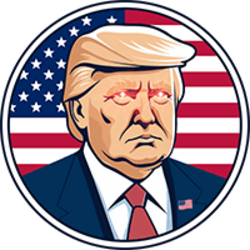

Community is everything in this globalised world of ours. Traditionally our affiliation might be with a specific locality, a religion, or indeed a nation state, but our conceptions of identity and belonging are becoming increasingly complex as improved connectivity draws us into dialogue with culturally and topographically remote individuals, as our interests come to the fore in our rendering of selfhood, whether that be psychosomatically, through social media platforms, or in the emerging Metaverse.
Investments have increasingly come to define us. This is sometimes misconstrued as a problem, when in reality a diversified economic base has provided a welcome conduit for self-expression. We might choose to wear Burberry to suggest ideological and cultural parity with proponents of a traditional English check. We might wear a Rolex to showcase our economic achievements in a way that is less ostentatious than elaborate dress jewellery. We might pick out a minimalist Issey Miyake dress to demonstrate that we are interested less in the fashion tradition, than in what fashion might be, to declare, ‘I am a modernist and an internationalist, removed from the trappings of geography and tradition’.
In all these instances, we are investing not in items, but in our identities, deploying purchased goods to emphasise our tastes, our interests, and our values. But the domain of the individualist extends some way beyond the parameters of fashion. It has long since reached into what we eat and drink, with the rise of vegan and vegetarian lifestyles, of teetotalism, and of low-carb, low-gluten, and low-fat diets standing testament to a sociological association between our purchasing power as citizens of a liberal democracy and our concomitant right to self-expression. It has emerged as an integral element of car marketing and design, with BMW’s most recent advertising campaign inviting individuals to consider whether their personality aligns with their conventional yet sophisticated standard range or their more avant-garde and divisive M models. And it has come to define the ranges of fragrances, home décor, and accessories developed by brands as diverse as Marc Jacobs and Jo Malone. More recently, however, it has extended into an area of the economy we never might have expected it to puncture: exchange.

Make Way For The Meme Currencies
The coincidence of memes with cryptocurrencies is no coincidence. Now that commodities can be traded on international exchanges which bear negligeable association with complicated and unstable company functions or common raw materials there is scope for focusing on what really matters: the look, feel, and character of the brand, and memes, one senses, are a convenient route to this end.

Memes are often about expressing what we are all thinking. They can also be about expressing a political line, or criticising another with which we are disinclined to concur. Chiefly, they are about translating a train of thought common to a particular segment of society into a simple graphic, whether that be young professionals disillusioned with the education system, emerging players in the marketing game sick of the lack of attention to detail or the deference to tropes in mainstream campaigns, or indeed Gen Z in its most general sense. It is possible to market cryptocurrencies to specific groups to ensure that this group invests, in the first part, and that profit is distributed within that group in the second.
Cryptocurrencies Are A Generational Thing
For educated, wealthy millennials, the doge meme has often represented a source of hilarity. It has been described by one commentator as ‘the height of Dadaist millennial humour’, distilling that generation’s prejudices about their intellectual or cultural juniors down to an essence. Indeed, the grammar is deliberately poor while the font – Comic Sans – is deliberately crude to emphasise the effects of so-called ‘lolspeak’. The introduction of Dogecoin (DOGE) was sure to be a success as its brand appealed to this generation, and it was. Yes, the launch increased interest in the meme, ensuring it had the ‘internet density of a large star’, but it also had direct impacts on the prosperity of millennials, with the unprecedented scale of the generation’s speculation ensuring the currency’s value skyrocketed.
So distinct is Gen Z from the preceding generation that it has, quite understandably, demanded currencies of its own. The more multifaceted notions of identity people born in this century have developed means a range of cryptocurrencies are needed to appeal to specific demographics. One currency worth noting is NEXT.coin (NEXT), an embodiment of the futurism a disillusioned people unsure about the future of the planet looks to optimistically. Another is Big Eyes Coin (BIG).
The unfathomably cute anime mascot has niche appeal, I suppose, but that is precisely what Gen Z are about. This is a cryptocurrency designed for the generation’s sizeable yet clearly defined demographic of gamers, manga enthusiasts, and Japanophiles. Investing in Big Eyes Coin (BIG) today means joining a tightl knit community of like minded people. It means contributing towards efforts to clean our oceans, with 5% of revenue being channelled into conservation efforts. It also means keeping your money within that community, preventing it from making its otherwise inevitable ascent up the social ladder to reach the middle-aged, detached financial elite responsible for the planet’s decline.
Use code LAUNCHBIGEYES200 for 200% launch bonus offer.
Big Eyes Coin (BIG)
Presale: https://buy.bigeyes.space/
Website: https://bigeyes.space/
Telegram: https://t.me/BIGEYESOFFICIAL

None of the information on this website is investment or financial advice and does not necessarily reflect the views of CryptoMode or the author. CryptoMode is not responsible for any financial losses sustained by acting on information provided on this website by its authors or clients. Always conduct your research before making financial commitments, especially with third-party reviews, presales, and other opportunities.













































































Be the first to comment